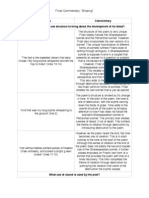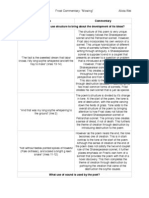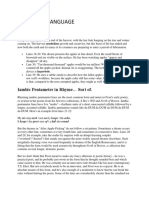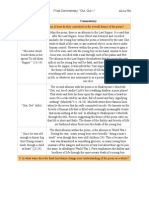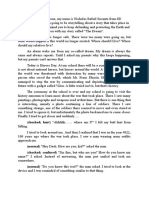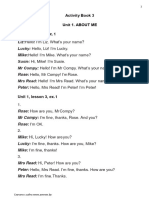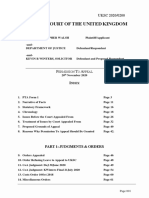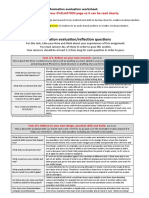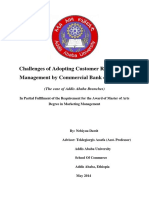0% found this document useful (1 vote)
260 views3 pagesMowing Notes
In Robert Frost's poem 'Mowing,' the narrator reflects on the satisfaction derived from honest labor while using a scythe on a hot day, personifying the tool as it 'whispers' to the ground. The poem emphasizes the value of hard work and the connection to nature, contrasting dreams of ease with the reality of labor. Through various figures of speech and a calm tone, Frost invites readers to contemplate their own relationship with work and existence.
Uploaded by
iqra87823Copyright
© © All Rights Reserved
We take content rights seriously. If you suspect this is your content, claim it here.
Available Formats
Download as DOCX, PDF, TXT or read online on Scribd
0% found this document useful (1 vote)
260 views3 pagesMowing Notes
In Robert Frost's poem 'Mowing,' the narrator reflects on the satisfaction derived from honest labor while using a scythe on a hot day, personifying the tool as it 'whispers' to the ground. The poem emphasizes the value of hard work and the connection to nature, contrasting dreams of ease with the reality of labor. Through various figures of speech and a calm tone, Frost invites readers to contemplate their own relationship with work and existence.
Uploaded by
iqra87823Copyright
© © All Rights Reserved
We take content rights seriously. If you suspect this is your content, claim it here.
Available Formats
Download as DOCX, PDF, TXT or read online on Scribd
/ 3




